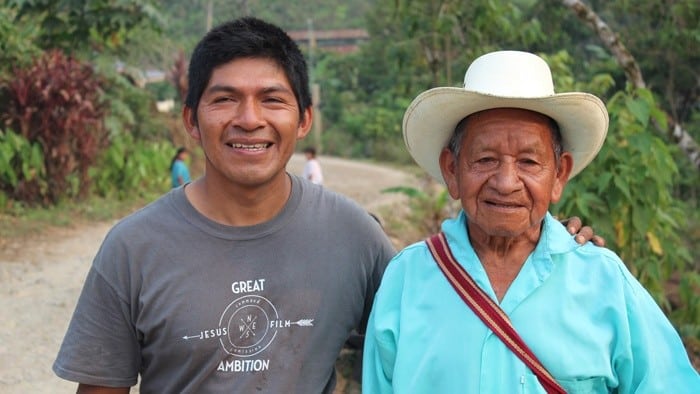“Therefore the Lord Himself will give you a sign. Behold, the virgin shall conceive and bear a son, and shall call His name Immanuel” (Isaiah 7:14, ESV).
Every year Christmas rolls around, I just can’t get over the idea of the incarnation-that God became human. The God who created galaxies and sun flares, beluga whales and bald eagles, decided to take on flesh and bones on my behalf (John 1:14). And not just flesh and bones-He also took on our suffering and grief (Isaiah 53:3) and the nature of a servant (Philippians 2:7), and He took to eating and drinking and hanging out with us (Luke 15:2).
Which means He also took on human language.
Have you ever wondered what language God used when He spoke light into existence (Genesis 1:3)? Or what language He used to call Abram out of Ur? How about when he used a donkey to get Balaam’s attention (Numbers 22:28), or when He commissioned Moses out of a burning bush (Exodus 3)? It didn’t matter to God which language He used. He chose each language for the hearers’ benefit, so they could receive His message.
As a native English speaker living in America, it’s natural for me to assume God speaks English. But if I had to learn another language to receive His gift of new life in Jesus, I would probably still be lost in my sins.
Not everyone makes the same assumption.
Many people in the world-around 5 billion of them-still don’t know Jesus in a personal way. And many of them have no idea that He speaks their language, that He sees them and knows them in the most intimate way.
This reality came into sharp focus when a small group of indigenous people in farming communities of Guatemala received “JESUS” in their language, Kekchi. One of our Jesus Film recording technicians relayed this story to me.
“We like to conclude our time recording new versions of ‘JESUS’ with a closing celebration for the voice actors. So at the end of 5 days of recording, the Kekchi voice actors assembled to celebrate what God will do through this film in the hearts and lives of people in their region of Guatemala.
“Before Pedro, one of our coordinators, prayed to close our time, he asked if anyone would like to say a few words. Many expressed their thanks for coming and for the opportunity to help make a film about Jesus for their people. As our translator, Lucia, told us what was being said, I noticed a repeated phrase. Several said, ‘Thank you for taking us into account.’
“Quite simply, they thanked us for not lumping them into the masses of Spanish speakers in Guatemala, but for recognizing their Mayan language as distinct-for caring that they could meet Jesus in Kekchi.
“As we closed our time together, I spoke about how Steven and I aren’t the only ones who have taken them into account. We stand in a long line of individuals who have participated in the effort to reach them with the message of the Gospel.
“And, it is God Himself who orchestrated all the funding, the translation work, and the other details to bring them the words and life of Jesus in Kekchi.
“He has taken them into account.”
It’s the mystery of the incarnation over and over again. Each time we share “JESUS” with people in their mother tongue, their heart language, we show them God putting on flesh for their sakes. On the most basic level, we show them God knows them. He is with them in the the most intimate way-their language.
He is the one called Immanuel, which means “God with us.” How perfect. The promise of God’s presence wrapped up in the very name He gave Himself.
Jesus put on flesh and felt my struggles.
He speaks my language.
He knows my name.
What a thought to unwrap this Christmas.
God speaks to everyone in all languages, nations and tribes, such as the Kekchi speakers of Guatemala. If sponsoring a project, language or people group is a burden on your heart, you can learn about specific projects to give towards by visiting, Jesus Film’s Current Projects tab.
